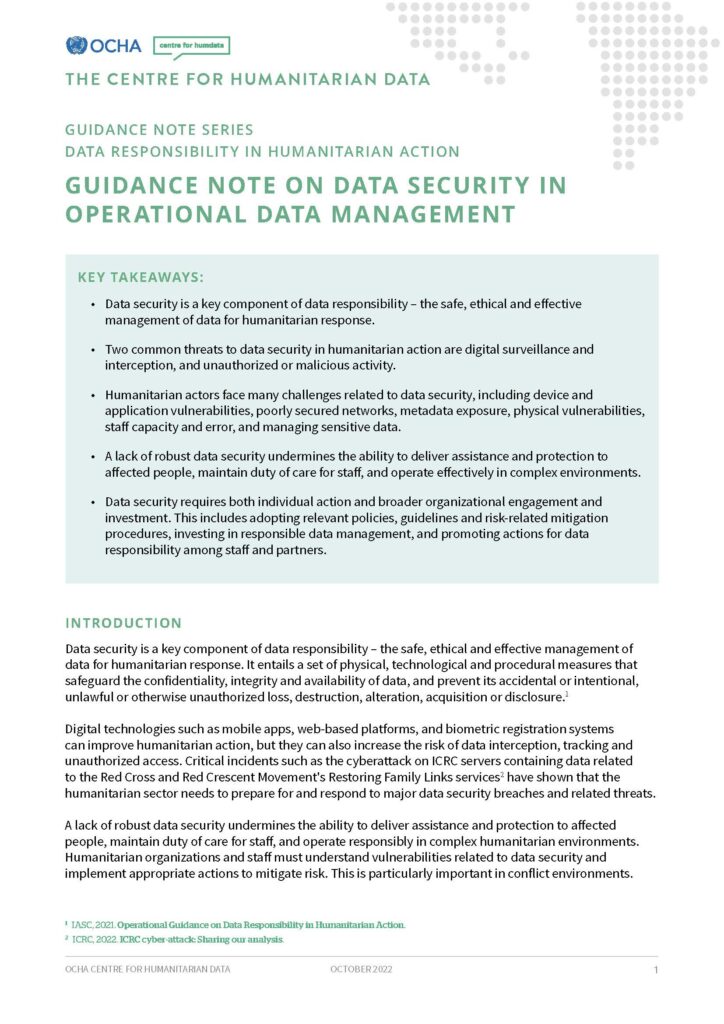Share
Data security is a key component of data responsibility – the safe, ethical and effective management of data for humanitarian response. Humanitarian organizations and staff must understand vulnerabilities related to data security and implement appropriate actions to mitigate risk, particularly in conflict environments.
Digital technologies can improve humanitarian action, but they can also increase the risk of data interception, tracking and unauthorized access. Critical incidents such as the cyberattack on ICRC servers containing data related to the Red Cross and Red Crescent Movement’s Restoring Family Links services have shown that the humanitarian sector needs to prepare for and respond to major data security breaches and related threats.
The Centre has developed a Guidance Note in collaboration with Privacy International and Yale University to provide an overview of common threats to data security and vulnerabilities in operational data management. The Guidance Note also offers a set of recommended actions to improve data security in humanitarian settings, while highlighting that data security requires both individual action and broader organizational engagement and investment.
The Centre, together with key partners, is publishing a series of guidance notes and tip sheets on Data Responsibility in Humanitarian Action to provide guidance on specific issues, processes and tools for data responsibility in practice. The guidance notes and tip sheets published in 2022-2023 have been made possible with the support of the Government of Switzerland.
Read the other guidance notes on Statistical Disclosure Control, Data Incident Management, Data Responsibility in Public-Private Partnerships, Humanitarian Data Ethics, Data Impact Assessments, Data Responsibility in Cash and Voucher Assistance, Responsible Data Sharing with Donors, and Responsible Approaches to Data Sharing here. The notes are also available in Spanish and in French.
For more on data responsibility in humanitarian action, visit the Data Responsibility page on the Centre’s website or contact our team at centrehumdata@un.org.
